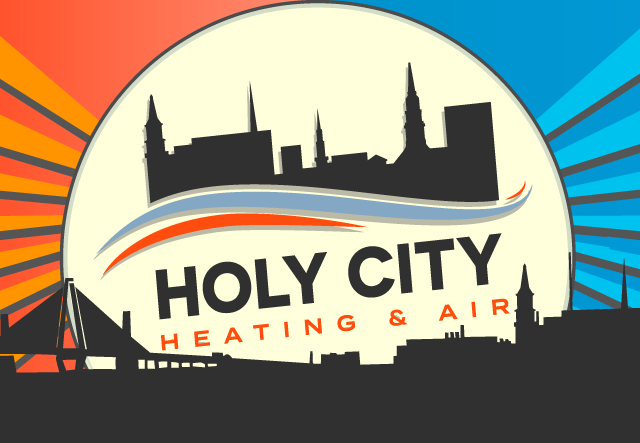As seasons change, ensuring your home maintains a comfortable temperature is paramount. Heat pumps are integral to this comfort, providing both heating and cooling. But, like all appliances, they do not last forever. Recognizing when it’s time for a replacement can save you the annoyance of frequent breakdowns and elevated energy costs.
Increased energy bills and difficulty keeping a consistent temperature might signal that your heat pump is nearing its end of life. These are just a few indicators your system may no longer operate efficiently. Additionally, if repairs become more frequent and costly, a new heat pump could be a more economical long-term solution. Understanding these signs is crucial to maintaining an efficient home environment.
Operational Inefficiency of Your Current Heat Pump
Recognizing operational inefficiency in your heat pump is crucial for maintaining home comfort. Common signs include unusually high energy bills and struggles to keep your home at the desired temperature. An aging heat pump typically works harder to produce the same level of comfort, leading to increased electricity use. These symptoms not only burden you financially but can also signal a deeper issue within the system.
As heat pumps age, vital components may deteriorate. This reduction in function affects overall system performance, making it challenging to efficiently heat or cool your home. Aging systems often run longer cycles, which wear out parts even faster. Operating beyond its useful life can result in a cascade of mechanical failures, turning what should be a simple heating or cooling task into an energy-draining ordeal. By understanding these signs, you can decide on an efficient heat pump replacement before facing extensive malfunctions.
Frequent Need for Repairs
If you’re scheduling frequent repairs, it’s an indicator your heat pump may be beyond a simple fix. Consistent breakdowns often mean the system is wearing out. Over time, parts like compressors or motor bearings diminish in efficiency, leading to recurrent malfunctions. Here are some red flags pointing toward an aging system:
- Loud or unusual noises during operation
- Short cycling or unit frequently turning on and off
- Inconsistent temperature delivery
- Costly repairs that make up a significant portion of a new system’s cost
The expenses of multiple repairs can quickly add up, potentially exceeding the cost of a new heat pump. Recurrence of issues often points to underlying problems that need more than just a quick fix. Opting for a new unit can ensure your system runs reliably and efficiently.
Choosing to replace rather than repair can be more cost-effective in the long run. Older systems not only drain resources through persistent repairs but can also impact energy bills negatively due to reduced efficiency. A new heat pump offers reliability, sparing you from the inconvenience and uncertainty of an aging system’s breakdowns.
Advancements in Heat Pump Technology
Modern heat pumps come with several advanced features that make them more efficient and environmentally friendly than their older counterparts. These systems significantly improve energy efficiency, reducing electricity consumption while delivering consistent comfort. By opting for a newer model, homeowners can enjoy substantial savings on energy bills and a smaller carbon footprint.
Current heat pump models include smart technologies, such as programmable thermostats, which allow precise control over heating and cooling settings from anywhere using a smartphone app. This feature not only boosts convenience but also contributes to reduced energy use by optimizing temperature management. Additionally, modern heat pumps are often compatible with HVAC UV lights, enhancing indoor air quality by reducing mold and bacteria growth within the system. These innovations make a compelling case for considering a heat pump replacement, ensuring a more sustainable and comfortable home environment.
Professional Assessment and Recommendations
Having our HVAC contractor conduct a professional assessment of your heat pump is essential. A thorough evaluation provides valuable insights into the current state of your system, highlighting issues that might not be immediately noticeable. Our professionals can determine whether it is more cost-effective to replace or continue repairing your heat pump.
During a comprehensive assessment, our contractors examine the condition of the system’s components. This process helps identify parts that are worn out or near failure. We also assess energy efficiency, examining if performance aligns with the expected standards. By considering these factors, you can make a well-informed decision about replacing your heat pump, potentially preventing future problems and improving efficiency.
Conclusion
Considering a heat pump replacement involves evaluating several crucial factors, from operational efficiency to technological advancements. Aging systems often lead to higher energy costs and frequent repairs, making replacement a sensible option. With modern heat pumps, homeowners benefit from energy-efficient features and improved air quality, making homes more comfortable and eco-friendly.
To ensure your home stays comfortable year-round, consulting with professionals can provide clarity on system status and replacement needs. At Holy City Heating & Air, LLC, our team is devoted to helping you find the best solution, enhancing efficiency, and promoting a better living environment. Our technicians will guide you through the process, ensuring your heating and cooling needs are met effectively. Contact us today to schedule a heat pump replacement in Daniel Island, SC, and take the first step toward an upgraded, efficient heating solution.






